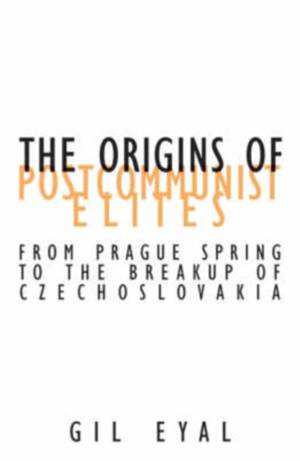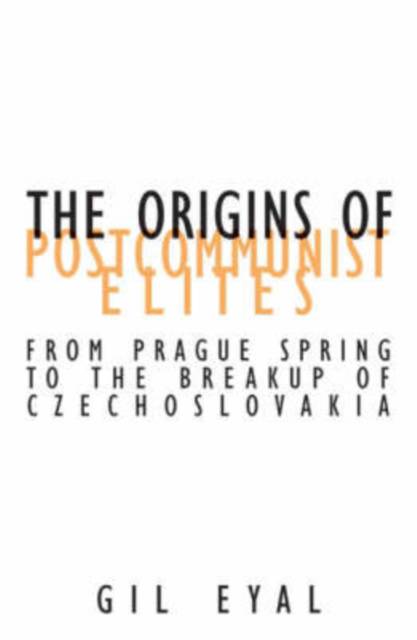
- Retrait gratuit dans votre magasin Club
- 7.000.000 titres dans notre catalogue
- Payer en toute sécurité
- Toujours un magasin près de chez vous
- Retrait gratuit dans votre magasin Club
- 7.000.0000 titres dans notre catalogue
- Payer en toute sécurité
- Toujours un magasin près de chez vous
Description
How is it that Czechoslovakia's separation into two countries in 1993 was accomplished so peacefully--especially when compared with the experiences of its neighbors Russia and Yugoslavia? This book provides a sociological answer to this question--and an empirical explanation for the breakup of Czechoslovakia--by tracing the political processes begun in the Prague Spring of 1968.
Gil Eyal's main argument is that Czechoslovakia's breakup was caused by a struggle between two fractions of what sociologists call the "new class," which consisted primarily of intellectuals and technocrats. Focusing on the process of polarization that created these two distinct political elites, Eyal shows how, in response to the events of the ill-fated Prague Spring, Czech and Slovak members of the "new class" embarked on divergent paths and developed radically different, even opposed, identities, worldviews, and interests. Unlike most accounts of postcommunist nationalist conflict, this book suggests that what bound together each of these fractions--and what differentiated each from the other--were not national identities and nationalist sentiments per se, but their distinctive visions of the social role of intellectuals.
Spécifications
Parties prenantes
- Auteur(s) :
- Editeur:
Contenu
- Nombre de pages :
- 272
- Langue:
- Anglais
- Collection :
- Tome:
- n° 17
Caractéristiques
- EAN:
- 9780816640324
- Date de parution :
- 21-05-03
- Format:
- Livre broché
- Format numérique:
- Trade paperback (VS)
- Dimensions :
- 162 mm x 227 mm
- Poids :
- 362 g







